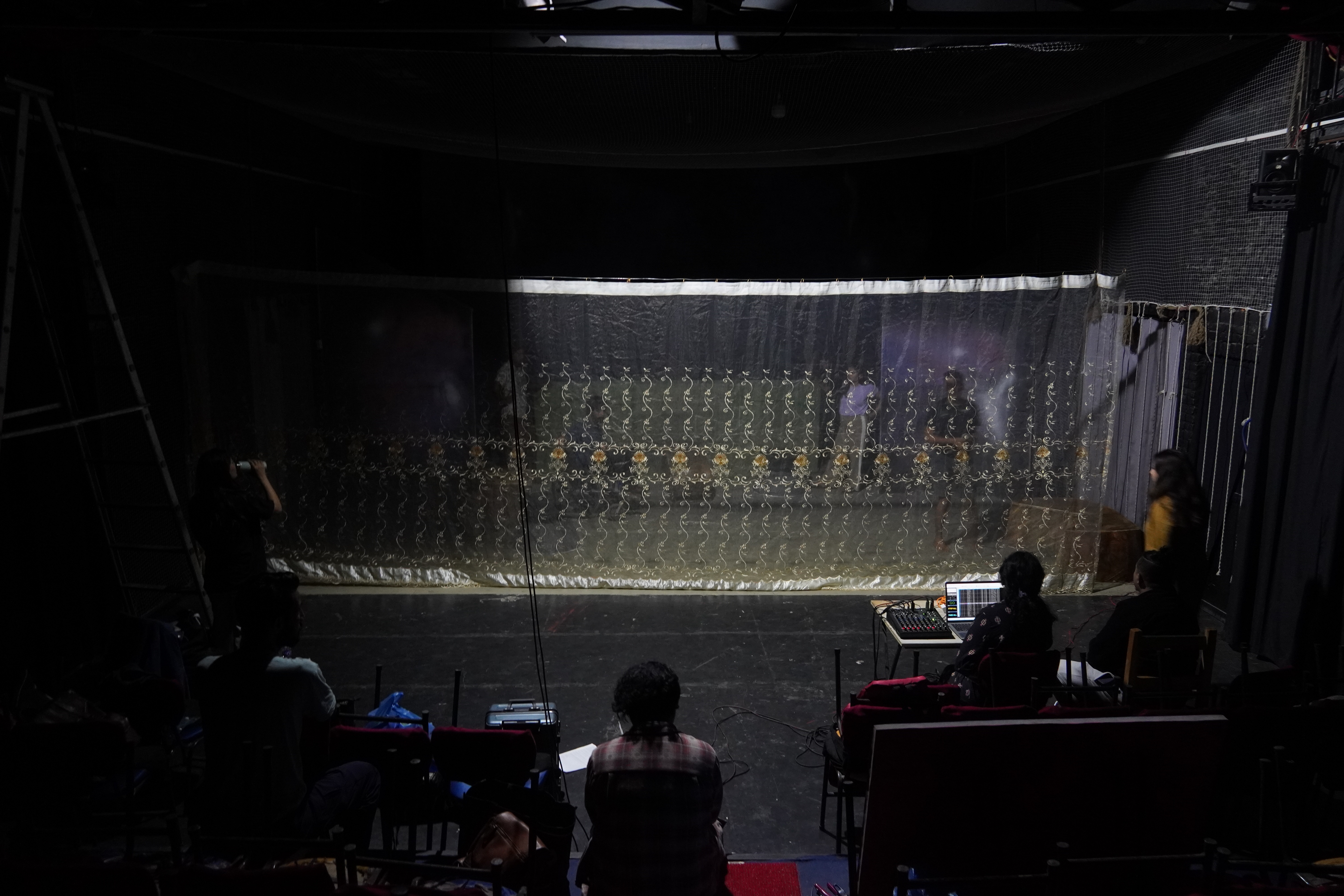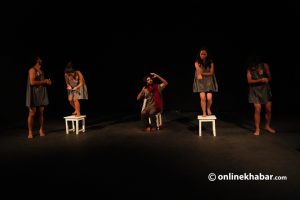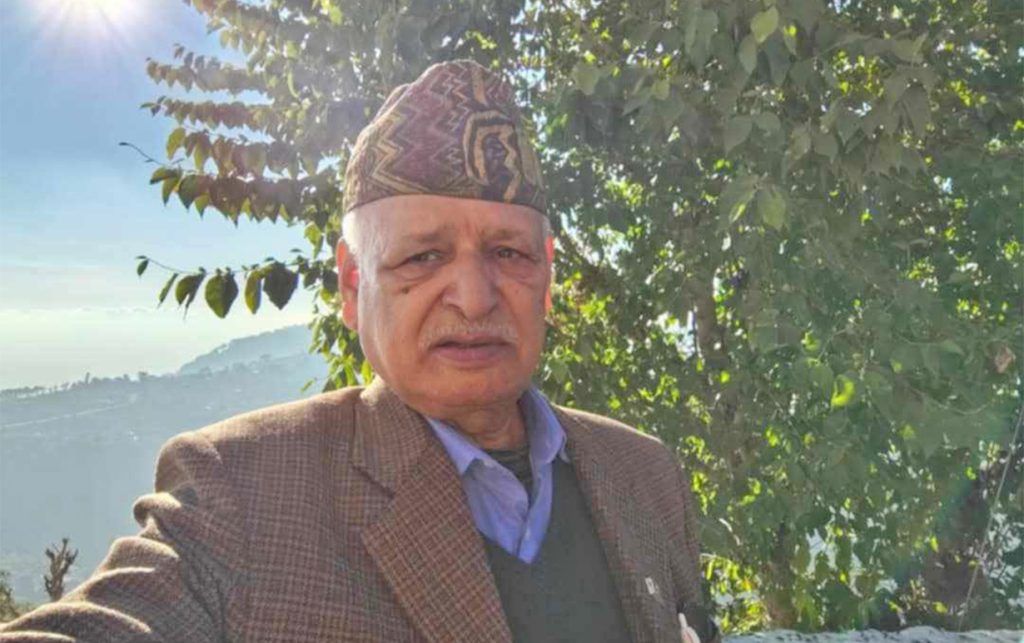
On a bright and sunny day, Akanchha Karki was putting the actors through their paces at the Kausi Theatre in Kathmandu. Karki, who is directing Wedding Album, is ensuring everyone knows what they are supposed to do. She is instructing them about their dialogues, settings, and prompts.
This was the first stage run-through of the Wedding Album, and everyone appeared confused. This was to be anticipated, as a large group of actors had come together for the first time to measure the progress of their rehearsals.
Over the next two hours, things improved. After repeated corrections regarding the volume and energy of the actors, the run-through was completed. Over the past month, the actors have dedicated themselves to rehearsing for the Wedding Album. Now, all the actors feel they are ready for the play and exude confidence in their roles and dialogues.
The Wedding Album was originally written by Indian actor and director Girish Karnad. The play’s narrative centres around the traditional family affairs leading up to a marriage, the hypocritical tendencies of an individual, and the status of women within a family.

In 2018, when Akanchha Karki visited New Delhi to perform at the National School of Drama, she bought scripts of various plays, and Karnad’s Wedding Album was one of them. Upon reading the script, she felt a strong personal connection. She found that she could relate the themes of the play to her own social circle and family life.
“The script beautifully and intriguingly portrays themes like marriage obsession, favouring sons in the family, the role of women in the family, and family conflicts during festivals and rituals,” says Karki. “These elements sparked my interest and inspired me to adapt the play.”
Karki believes that the plays resonate with the majority of Nepali families. She believes many will easily relate to the themes presented in it.
“I spent eight months translating the play and filling it with Nepali context,” she said adding how much she loves adapting plays.
In the Wedding Album, Karki has incorporated several alterations and improvisations into her adaptation, which can only be fully appreciated by witnessing the performance.
Casting process

Given that the play centres around a wedding, this play has tried to show how chaotic and full of activities a Nepali wedding can be. To give it that very feel, the play features 12 actors who will be responsible for bringing this hustle and bustle to life on stage.
The actors were chosen through auditions, although some of them had already been on Karki’s radar while she was translating the play.
“I’m very happy with the cast. I believe everyone will excel in their respective roles as their chemistry is so good,” says Karki.
The Wedding Album features Akanchha Karki, Loonibha Tuladhar, Aashant Sharma, Sudam CK, Ranjana Bhattarai, Kenipa Singh Pahari, Jiban Gautam, Sebita Adhikari, Rishikesh, Nistha Tripathi, Nabin Chandra and Binita Gurung.
Balancing the books

Production of a play, however, is a substantial undertaking, and managing finances was no small feat. Katha Ghera, the producer of Wedding Album, has attempted to address this challenge through various means. Similar to previous productions like Private is Political and Animal Farm, the theatre attempted crowdfunding.
“Since the government does not provide any kind of subsidy, crowdfunding can be a good option for the independent play-makers,” says Karki.
The Wedding Album, whose total production cost is around Rs 1.3 million collected around Rs 50,000 in cash and a few more in kind through crowdfunding. Additionally, the production has secured sponsorship for necessities such as food, costumes, photoshoots, and other essential items. Donations for the play ranged from Rs 500 to 10,000 from various contributors.
The promotional photoshoot for the Wedding Album may appear grand and lavish, but Karki says it was executed with a budget of just Rs 2,500.
“I think we have earned the trust of people which is why we continue to receive support from them when we call for crowdfunding,” says Karki.
That said, she does say the support usually comes from people and organisations who have supported them in the past.
“The proposals we sent to new organisations have not received any replies,” she says.
The revolving set

The set is regarded as the heart of the play, with the plot of the story and setting being two sides of the same coin. They should complement each other seamlessly. Karki, recognising the essence of the Wedding Album’s narrative, has exerted equal effort in ensuring that the play’s setting is equally captivating.
How? For the first time in Nepal, a play will feature a revolving stage. That is sure to make Wedding Album an intriguing watch and the excitement among the actors is evidence of that.
“Among many of my dreams, introducing a revolving stage in Nepali theatre was one of my biggest dreams,” says Karki. “Finally I have made it happen,”























